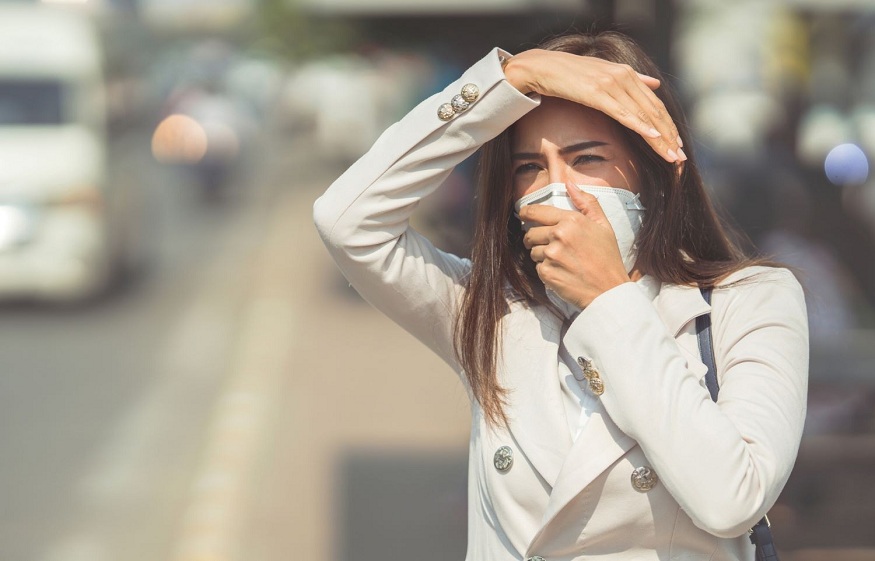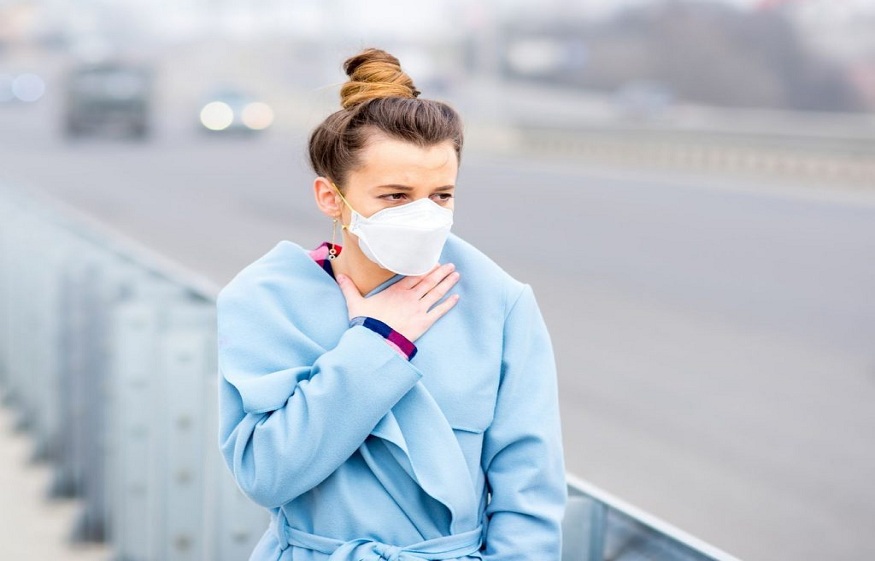The effects of air pollution on human health are now known and are constantly receiving greater attention. Worldwide, it is estimated that between 4 and 5 million deaths are attributable to air pollution, ie nearly one in five deaths.
Here are the main effects of pollution on the human body as well as our advice to protect yourself from it and preserve your health.
How does air pollution contaminate the human body?
Air pollution is particularly insidious. We can be contaminated by pollution without realizing it since unlike other types of pollution, that of the air can move easily, is most often invisible, odorless and therefore difficult to detect.
Pollution can contaminate humans in several ways:
The respiratory tract is the main mode of contamination, but the digestive tract should not be neglected: the pollution attaches to the food we eat and ends up contaminating our digestive system.
Contamination through the skin is less frequent, but it can be a significant risk for those handling substances such as pesticides.
Air Pollution Symptoms and Diseases
The symptoms and illnesses directly attributable to air pollution depend on many factors: the type of pollutant, the duration of exposure, the health of the contaminated person or personal sensitivities.
Depending on the pollutants and the duration of exposure, more serious illnesses can develop. Unlike some symptoms of acute exposure, severe pollution or chronic exposure can have far more dramatic consequences with chronic effects.
The key role of the duration of exposure to pollution
If pollution peaks often make the headlines, they are not necessarily the most feared for their long-term effects on the health of human beings.
Residents are often quite aware of these peaks, and adapt their activities according to health recommendations.
On the other hand, exposure to pollution on a chronic basis, even at moderate levels, does not lead to the same response from public authorities or the same fear as large peaks. However, it is chronic exposure to pollutants that has the greatest long-term effects. People most at risk from air pollution Like all diseases, not everyone is equal in the face of pollution. Pregnant women, children or the elderly are thus more vulnerable due to their respiratory tissues which are either insufficiently developed or aging.
Similarly, smokers or people suffering from chronic pathologies (cardiovascular, diabetes, etc.), in particular those affecting the respiratory tract such as asthma and allergies, are particularly at risk.
How to protect yourself from air pollution?
There are several tips to guard against the effects of air pollution on health. Some are easier to implement in your daily life than others, but each can help protect your health from pollutants.
Check your local pollution forecast. Meteorological sites or those following pollution can give you indicators to help you detect periods of risk.
Avoid exercising when pollution is high or near a source of traffic. Avoid going to places that concentrate pollution: central roads, intersections, car parks… If you travel by bike, use the small roads.
Conclusion
Air pollution, especially chronic, can have deleterious effects on human health. It is necessary to avoid it as much as possible and to apply common sense advice to limit your exposure, but also to reduce its production. best books on ecologybest zero waste books find a gift idea
10 simple actions to preserve nature
Do you want to get involved on a daily basis with simple gestures? Rethinking our behavior and the management of our waste is an essential means of countering the devastating effects linked to the disruption of our planet.
To guide you in your first steps, we offer you our ebook for free for any subscription to our newsletter. You will find a summary with simple tips to put in place, and links to expand your reading.
Fill in your email, and receive directly our guide of “10 simple gestures to preserve nature” as well as our future publications.


